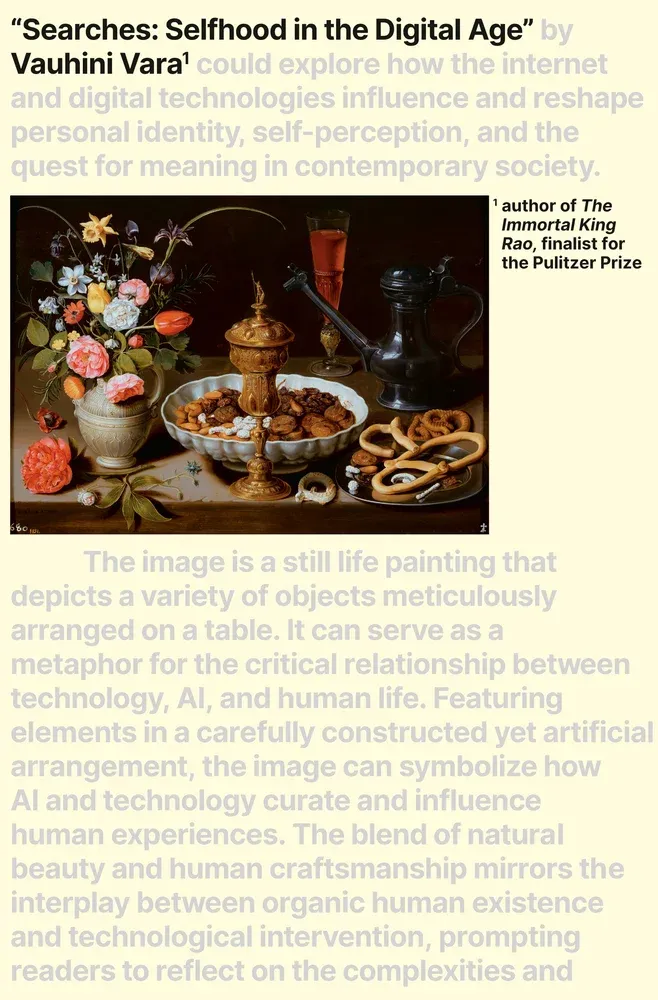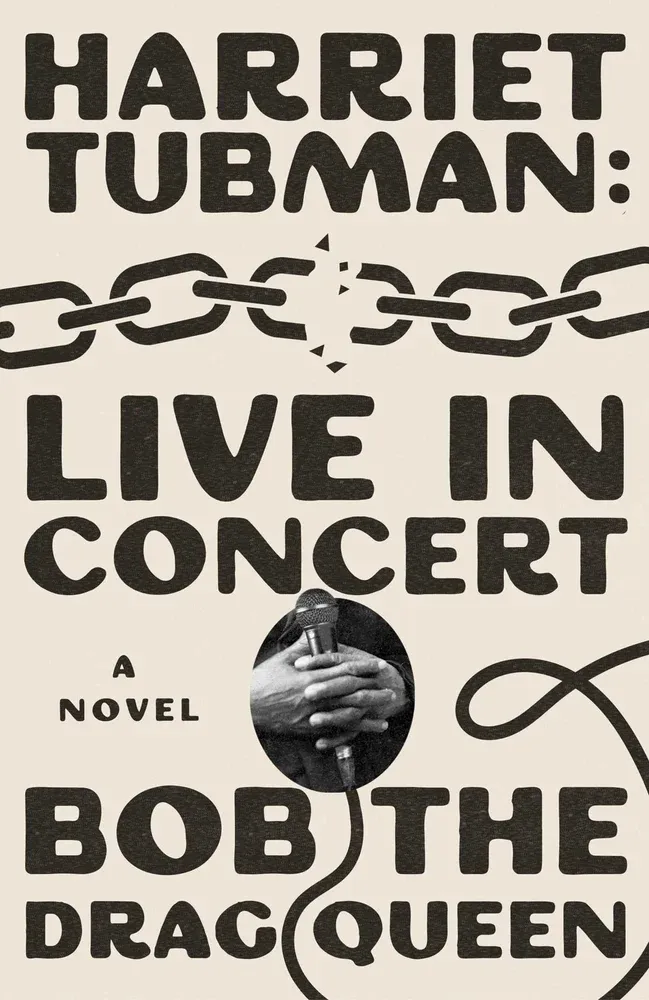The Maris Review, vol 50
Alas, AI doesn't have feelings but it really deserves to feel embarrassed. Or the people who've built it should.
What I read this week

Searches: Self-Hood in the Digital Age by Vauhini Vara
I love this book for many reasons, but I particularly love it for its ambivalence. Weird thing to say about a book, I understand. But very fitting for linked personal essays about how we use technology and how technology, in turn, uses us. We are all (well, at least most of us) complicit in letting big tech take over our lives. But it's not so simple. Even if you take away the sheer convenience of Amazon, about which Vauhini writes in an essay about swearing off Amazon except when she really needs it in a time crunch (reminder that Bookshop and Libro.fm are great alternatives for book-buying that support local businesses), we're still so reliant on tech to just participate in the world. It's just not practical to divest. I think about Google and how their search engine has become nearly unusable, but I still use the email service, the maps, the document storage.
Vauhini is a tech journalist who is also a particularly adept prose writer (read her 2022 novel, The Immortal King Rao!), so she is the perfect guide through this world in which a bunch of tech companies insist that they're improving the world all while growing more and more rich by mining our personal data and exploiting our labor and overall being supervillains. The book is filled with experiments in form, from a piece that is simply a compilation of all of Vauhini's past search terms by year, to one in which she writes in Spanish (she's proficient, but not an expert) and has Google Translate's English translation run alongside the Spanish version so that getting the message feels almost like a game of Telephone.
In 2021 Vauhini went viral for a piece she wrote for The Believer in which she used an early version of ChatGPT to help her to write an essay about the death of her sister. That essay is included in the book, but its focus on AI goes much further. After each chapter she feeds her text through ChatGPT and then asks for feedback on her work. The results are surprising, or they were to me at least. Like, I am rooting against AI – it's bad for art and culture and it's bad for the environment, etc – but holy shit I still wasn't prepared for how bad it is at doing its job. This version of LLM is full of cliches and biases and errors in its writing that it then presents confidently to Vauhini. Alas, AI doesn't have feelings but it really deserves to feel embarrassed. Or the people who've built it should. I miss shame so much. Instead, it's left to conscientious writers like Vauhini to feel ashamed of using and sometimes benefiting from these tools. After I finished the book I felt implicated too. If only the leaders of technological capitalism had such ethical concerns.

Harriet Tubman: Live in Concert by Bob the Drag Queen
Every time I watch Drag Race (often), I marvel at the number of different talents you must possess in order to compete: you need to be both supermodel and fashion designer, dancer and songwriter. You need to be an expert at impersonation but you also have to be authentically, earnestly yourself. You have to be cunty yet nice. Season 8 winner Bob the Drag Queen was all that and more. Last week I saw him do standup at Union Hall and was so impressed. And I also saw him open for Madonna at the Barclay's Center??? So of course I was gonna listen to him narrate his first novel.
How was it? Well, I don't think it's gonna win the National Book Award, but it's sweet and funny and so high-concept you can figure out what the book is about from the title alone. Harriet Tubman, that great conductor of the Underground Railroad, inexplicably time travels to the 21st century along with a few members of her crew, and they ask our narrator, a producer named Darnell, to help them make an album. What follows is more of a character study than a straight narrative, but that's okay. This band of survivors is mostly there so Darnell can learn from them, discussing religion and philosophy and what freedom means in ways that profoundly shake him. Harriet Tubman: Live in Concert has some great one-liners, but it's also got the same tone as the second to last episode of a Drag Race season, the one when RuPaul shows all of the final contestants their childhood photos and asks them to give advice to their younger selves. The cliches are the point, and yet you can't help but root for them to succeed.
It's important to have goals...
Last week I wrote a very personal essay about my hopes for my upcoming book. They are modest because I've worked in and around books for a very long time, and I know what to expect. Week after week I tell you all about new books, books that I want to read, and very few of them become bestsellers. If I could have my way, every author who I feature in this newsletter would be able to make a living from writing books (if that's what they wanted to do). Truthfully, I'd love to be able to make a living from any sort of combo of writing and/or editing, and I'm not entirely sure I ever will again.
Shit, sorry to get so dark. Here's a pic of my dog.

New releases, 4/15

Fish Tales by Nettie Jones
Open, Heaven by Seán Hewitt
The Imagined Life by Andrew Porter
When the Harvest Comes by Denne Michele Norris
What's Left: Three Paths Through the Planetary Crisis by Malcolm Harris
Dysphoria Mundi: A Diary of Planetary Transition by Paul B. Preciado

